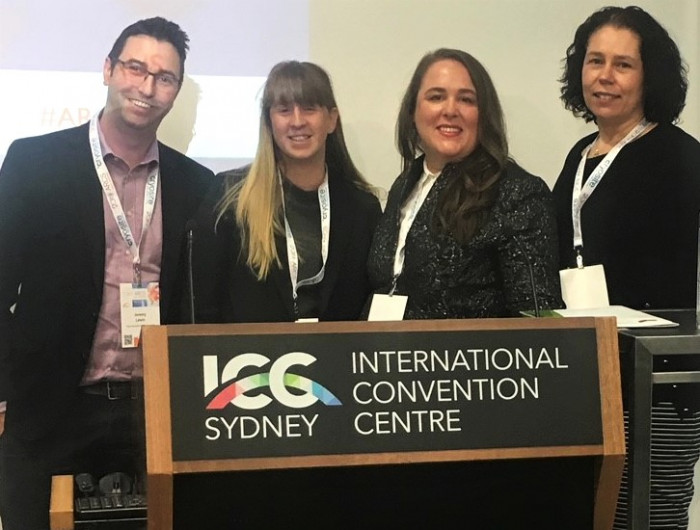






Findings from the VCCC Alliance’s Strategic Research Plan relating to cancer clinical trial access have the potential to change the game for adolescents and young adults (AYA) in Australia.
An important paper, published in the Journal of Adolescent and Young Adult Oncology and co-authored by VCCC Alliance Associate Head of Research, Associate Professor Justine Ellis, seeks to implement system-level change to improve access to clinical trials for this cohort.
It is well-recognised that AYA can get ‘stuck’ in the divide between paediatric and adult cancer care, and barriers in access to clinical trials is just one consequence.
The AYA age range (defined by the steering committee as 15-25y) can develop both paediatric-type cancers and adult-type cancers. Despite this, most clinical trials for adult cancers set a lower age limit of 18, even if younger patients have the type of cancer that the trial is studying and they are being treated in an adult hospital.
Thankfully, the number of paediatric cancer clinical trials that allow participation by patients 18 years and over is growing, but these are almost always conducted in a children’s hospital, which sets an upper age limit for care of 18 years.
Dr Ellis said there are ‘blocks everywhere’ for AYA with cancer to participate in, and benefit from, clinical trials.
“Participation rates of AYA in cancer clinical trials are lower than for younger children or older adults, leading to slower improvements to standards of care.
“It’s a very real problem with an opportunity to really move the dial.”
In establishing the program, it became clear the issue of clinical trials access had plagued those involved in the care of AYA with cancer for a long time.
“There had been lots of talk about what the problems were, but no real solutions,” Dr Ellis said.
“This was an opportunity to make a real difference.”
The Strategic Research Plan created the scaffolding for collaboration amongst alliance member organisations and beyond, as well as funding a dedicated program manager to coordinate the project with expert input from the steering committee and working groups.
“The alliance was crucial here. The problem we were trying to address spanned both paediatric and adult cancer care, and therefore not something that a single organisation could effectively tackle in isolation. Changes to the system needed a coordinated effort between cancer services.”

Presenting on the AYA clinical trial gap at the ARCS conference in Sydney in August 2019.
L to R: Dr Jeremy Lewin (AYA program Chair), Natasha Morello (AYA program consumer representative), Ali Robertson (AYA program Chair) and Justine Ellis (AYA program manager).
Dr Ellis said as well as the substantial expertise of the steering committee, one of the most crucial voices behind the program was the steering group consumer representative, who had a lived experience of being an AYA with cancer and being blocked from straightforward access to a clinical trial.
“There was huge power in her message – it really brought home to people how significant the problem was, and how important it was to find solutions.”
The Increasing AYA Access to Clinical Trials program was designed to complete its work within the timeframe of the three-year Strategic Research Plan, which is why implementing systems-level change was so vital.
The program delivered on several key initiatives, including:
“We aimed to change the system as much as possible within a defined period, then let that change be the movement forward, rather than needing continued support from a dedicated program,” said Dr Ellis.
“Our success in changing the system will bear out over time as data is collected year on year on AYA participation in clinical trials.”
When Dr Ellis took on the role of AYA Program Manager, she admits she wasn’t aware of the extent of the AYA clinical trial gap.
But with input and support from the expert steering committee, working groups and beyond, the program team was able to achieve some major milestones in such a short space of time.
“One of the achievements of which we were all most proud was seeing the TGA endorse the US FDA guideline on the inclusion of adolescents in adult cancer clinical trials,” she said.
“This is an enduring shift in thinking at a national level that we expect, over time, will move that dial towards broader access to cancer clinical trials for AYA being the norm in Australia.”
“If our work makes a real difference to the outcome for just one AYA with cancer, then our program has been a fantastic success.”
To facilitate knowledge sharing, all of the products produced by the program are freely available as part of the VCCC Alliance AYA toolkit.
A substantial suite of resources is available, as well as key information on ethics, governance and collaborations, and how adolescents and young adults access adult and paediatric trials respectively.
For more information, contact Associate Professor Justine Ellis, Associate Head, Research.
